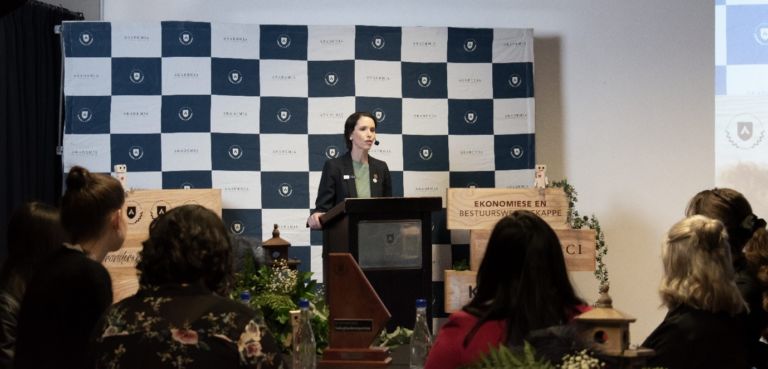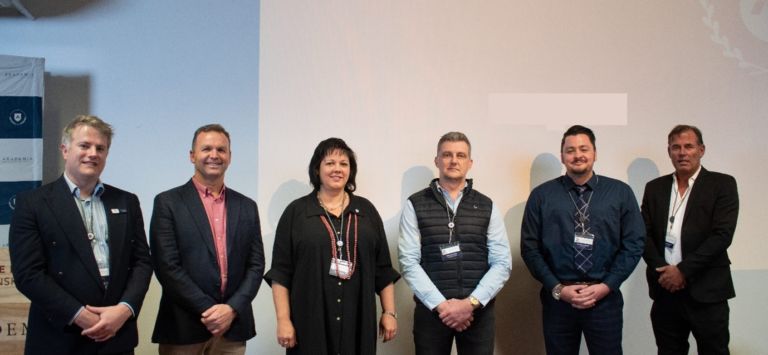Akademia hosts a Management Sciences Symposium in preparation for the fifth industrial revolution.
On 1 September Akademia’s, Department of Management Sciences within the Faculty of Economic Management Sciences presented a symposium with the theme: Society 5.0. This symposium was held at koshuis@Leriba and broadcast live for viewers.
The selected guests who attended the symposium included academics from public universities and private higher education institutions. Role-players who are in the industry and alumni of Akademia also attended the symposium.
According to Elize-Mari Coetzer, department head of Management Sciences at Akademia, the symposium had a dual purpose. ‘First, we wanted people to walk away from the symposium knowing what the fifth revolution (5IR) is all about, and which business skills and instruments are useful in this revolution. Second, we wanted to remove the barriers between academics and practice, and also build bridges to establish networks and relationships among each other.’
The guest speakers of the function brought their knowledge and insight regarding the 5IR to the programme. ‘There was much opportunity as well throughout the day to think and reflect on the speakers’ presentations,’ mentioned Coetzer.
The symposium started with a presentation of what the 5IR truly entails by Prof. Chris Adendorff, a senior futurist and presidential commissioner for the South African Fourth Industrial Revolution. ‘The 5IR has two components: the introduction of new technology and a reorganisation of the industry brought about by that technology,’ mentioned Adendorff. He also stated that the 5IR will have a greater focus on the human aspect and that an emphasis will be placed on the partnership between humans and technology.
Johann Smith, a lecturer of innovation management at Akademia, presented a reading that concerned the metaverse and higher education. ‘The metaverse has several definitions, but it is a virtual or alternative environment that we enter thanks to altered reality or virtual reality’ said Smith. He mentioned that this metaverse technology can improve students’ learning and that many opportunities for this already exist. ‘However, we will have to create new worlds for our students.’
Digital sciences- and innovation manager, Isak van der Walt, also delivered a presentation on disruptive technologies and services in the fourth industrial revolution (4IR). ‘One of these examples is Libby, a client services robot that works at the Library of the University of Pretoria,’ said van der Walt. Libby can answer basic questions related to the library and makes use of, among other things, sensors, cameras, face recognition-, and text-to-speech technology. ‘Cooperation with the role-players and other departments is important when taking on innovate projects in the 4IR.’
Elaine Alberts, project manager at Standard Bank, answered the question of whether change management can empower us for the 5IR. ‘Change management can definitely empower us for the 5IR, as long as it takes place in an ecosystem and not in isolation. We must thus understand the ecosystem wherein change occurs,’ mentioned Alberts. She continued to say that to help drive growth and realise people’s dreams, change management requires a holistic approach as well as comprehension, knowledge, and skills.
Culture evangelist at King Price, Marno Boshoff, addressed the audience regarding the way in which driving an innovative culture could make a difference in the 5IR. ‘Culture is a human dynamic, which means it is about humans. Culture is the way of doing in a company,’ mentioned Boshoff. He went on to say that a healthy organisational culture drives productivity and that there is 300% more innovation at a company when employees are happy in the workplace.
Dr. Thommie Burger, a certified financial modelling- and business value analyst at JTB Consulting, the last guest speaker for the day, shared helpful tips with the audience that could be useful for the 5IR. One of these was to use the Business Model Canvas to ensure that all the aspects of the business increase productivity. Another tip is to regularly revise your business plan to ensure that the business reaches its goals.
The day concluded on a high note with the presentations of the top 3 business plans of the BCom’s (Business Management) Business Plan Competition. This competition provides the opportunity for Akademia students in the BCom (Business Management) program to compose a business plan, present it to a panel, and to establish their own businesses. The panel provided feedback to the students at the symposium and the audience could also vote for their favourite business plan. During the gala evening that followed this event, the winners of the competition were to be announced.
‘It was a very valuable symposium those of us at Akademia’s Department of Business Sciences look forward to all the opportunities that the 5IR will present to us. We are also excited to keep developing our qualifications and methods of presenting class in order to remain at the vanguard of the rapidly changing technologies and still retain its heart,’ concluded Coetzer.
If you missed the symposium, watch it here.




